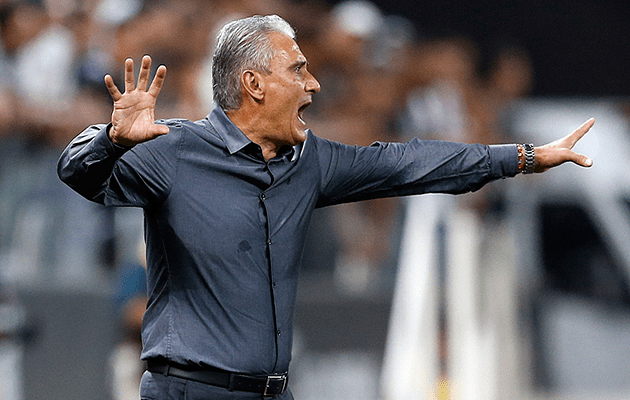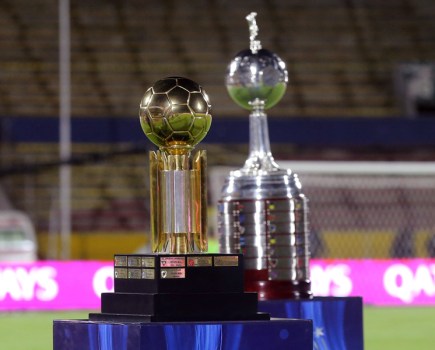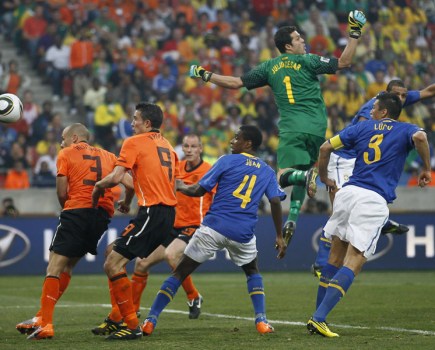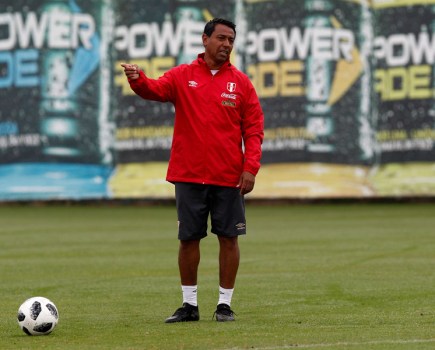All the usual disclaimers apply to the 2016 Brazilian championship as a tournament played out of sync with the rest of the football world carries with it factors of unpredictability. The early stages, for example, coincide with the knockout phase of the Libertadores Cup, so those Brazilian teams involved are likely to field understrength sides for the first domestic games. Then there is the transfer window, which opens in the middle of the action, bringing with it considerable changes to the team line-ups – with more losses than gains.
And this year there is the added complication of the Copa America in June and the Olympic tournament in August. Add in vital World Cup qualifiers in September, October and November, and it is clear that some big names are likely to miss a large part of the action.
The major question confronting the Brazilian game is how long will clubs go on tolerating such a calendar? The fruit of inward-looking, anachronistic organisation, the domestic game is set up in such a way that makes it all but impossible for even the biggest clubs to compete on a global basis. A progressive consensus is now forming, outside the corridors of power, on the need for change. And while there have been the first signs of restlessness from the clubs, we are still a long way away from the prospect of them getting together to organise a league on a more rational basis.
That said, at least there is one good thing to say about the 2016 championship in that it will be a little bit more of a national affair than last year’s version. Just eight of the country’s 27 states are represented in the first division, but last year there was only one team from the north east, a region that staged half the 2013 Confederations Cup and a third of the following year’s World Cup.
Sport of Recife were on their own last time out, and enjoyed one of their best seasons, finishing a solid sixth. They are now joined in the top flight by neighbour Santa Cruz, a team with a huge following which has seldom been able to punch anywhere near its weight on a national level. And also promoted were Vitoria of Salvador, something of a yo-yo club in recent seasons.
This increased north-eastern representation is clearly healthy. But unless Sport, coached by 1982 World Cup hero Falcao, are to pull off a surprise, it would seem certain that the title will go to one of the 17 clubs based in the south and south-east regions.
The leading contenders are clustered in the four major cities of Brazilian football: Sao Paulo, Rio de Janeiro and Belo Horizonte in the south east, and Porto Alegre in the south. This year, though, there would seem little chance of the Rio clubs bringing an end to a disappointing recent sequence as the 2016 Olympics are proving a problem to the clubs in the host city.

The Maracana will be out of action for most of the season.
Both major stadiums, the Maracana and Engenhao, have been handed over to the IOC and will only be available to stage league games in the closing few weeks. The Rio clubs, then, would seem condemned to a nomadic existence. Newly-promoted Botafogo may well use the stadium of just relegated Vasco da Gama, cutting out the travel worries, but Botafogo are a cut-price outfit who will be happy with mid-table survival. Fluminense have been chewing their way through coaches and hope that the experienced Levir Culpi can arrest a worrying slide that nearly left them in danger last year. And Flamengo under Muricy Ramalho may be interesting, but still look like half a side with half an idea.
There are problems, too in Sao Paulo. Reigning champions Corinthians had the heart cut out of their side by an exodus to China in January. Coach Tite has done a fine rebuilding job, but he might be lost to the national team before long.
Both Sao Paulo and Palmeiras, meanwhile, have made poor starts to the year. The former are coached by Edgardo Bauza, an Argentinian who has yet to find his feet, while the latter have an over-sized squad full of too many similar options. Santos, from the nearby port city, have an attractive team and could be contenders, but they are likely to suffer from Olympic call-ups and the loss of key players in the transfer window.
In Porto Alegre, Gremio often have possession without punch, while Internacional have been caught of late in a spiral of under-performance. The early focus, then, might be on the Belo Horizonte pair. Cruzeiro seem to have assembled an interesting squad, though coach Deivid’s lack of experience is a risk. Atletico Mineiro, meanwhile, were runners-up last year and under Diego Aguirre they have added intelligent re-enforcements while adding more control to a style that could be over-frenetic.
Conciliating a domestic campaign with the Libertadores will not be easy, but Atletico have high hopes of a first league title since the inaugural version back in 1971.
Key Dates
Season starts: May 13, 2016
Season ends: December 3, 2016







